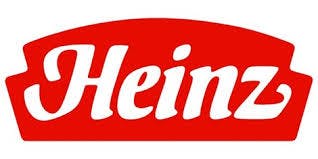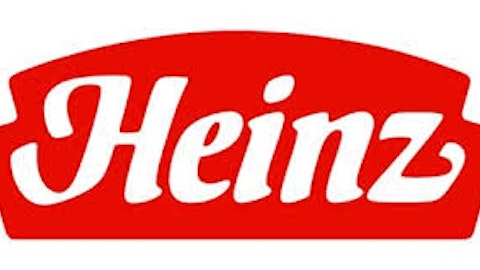Legendary value investor and Berkshire Hathaway Inc. (NYSE:BRK.A) (NYSE:BRK.B) CEO Warren Buffett has the kind of problems the rest of us only dream of having. Problems like, “What brand names can I spend $30 billion on this year that would turn a solid profit with a reasonable margin of safety?” The answer, or $13 billion worth of it, at least for Berkshire’s end, is H.J. Heinz Company (NYSE:HNZ).
I love a good mystery, don’t you? Let’s see if we can follow the Oracle of Omaha’s trail of breadcrumbs and unlock the hidden value of Heinz.

Heinz’ dividend growth rate has increased by 6.4% over the last 5 years. This trend will no doubt accelerate after the company is taken private. Heinz is, after all, the only large scale food company that can boast 30+ quarters of organic growth.
The structure of the deal is extremely favorable to Berkshire. Berskhire will also invest $4.12 billion in Heinz common equity, another $8 billion in preferred shares, and an additional $100 million in warrants, the details of which are undisclosed. 3G Capital will contribute $4.12 billion of equity, the rest to be financed by $7.1 billion in debt, courtesy of Buffett’s favorite banks, Wells Fargo & Company (NYSE:WFC) and JPMorgan Chase & Co. (NYSE:JPM)).
Still, the deal has many traditional value investors scratching their heads.
The Berkshire/3G acquisition is the largest in the history of the food packaging industry. Why would Warren Buffett pay a +20% premium over the current stock price for a company that, at least according to traditional valuation metrics, was already richly valued? Heinz’ stock was just off all-time highs. How does Heinz fit the “reasonable margin of safety” requirement?
Value investors should keep in mind that Warren Buffet isn’t exclusively interested in strictly value-oriented propositions; rather, Buffett seeks out growth at a reasonable price from strong businesses with relatively low debt and solid cash flows.
Buffett’s take
So what does The Oracle receive in return for his massive investment in Heinz? $720 million (pre-tax) a year on his $8 billion worth of preferred shares with a 9% yield, and zero management on Berkshire’s end. Interest on the $7.1 billion in new debt will run $200 million a year after tax. The remainder will be divided equally between 3G and Berkshire, roughly $40 million each per annum.
But wait, there’s more! By implementing cost control measures, aggressive expansion into emerging markets, and by spinning off Heinz’ lagging frozen divisions, Buffett and Co. may very well double Heinz’ top line revenue, potentially resulting in a $500 million annual windfall for Berkshire and 3G. Increased revenue would allow Berkshire to recoup its entire investment in less than a decade, after which Berkshire may choose to either continue collecting those premiums on its Heinz preferred, or sell its stake in the company.
Berkshire also has a third, less reported option: It can exercise its $100 million in warrants, and seize majority control of Heinz itself.
Warren Buffett and retail investors don’t have the same problem. Heinz’ revenue would have to grow considerably to justify 3G/Berkshire’s offer of $72.50 per share, but that constraint applies only to common equity, not preferred shares. Berkshire Hathaway shareholders will receive their cut off the top regardless of whether Heinz hits its ambitious growth targets. On the other hand, if 3G’s growth plan for Heinz proves successful, Berkshire investors will be in for a windfall. So far from being a waste of Berkshire’s capital, it’s difficult to imagine a scenario in which Buffett could lose.
The article What Does Warren Buffett See in Heinz? originally appeared on Fool.com and is written by Jessica McCann.
Copyright © 1995 – 2013 The Motley Fool, LLC. All rights reserved. The Motley Fool has a disclosure policy.


